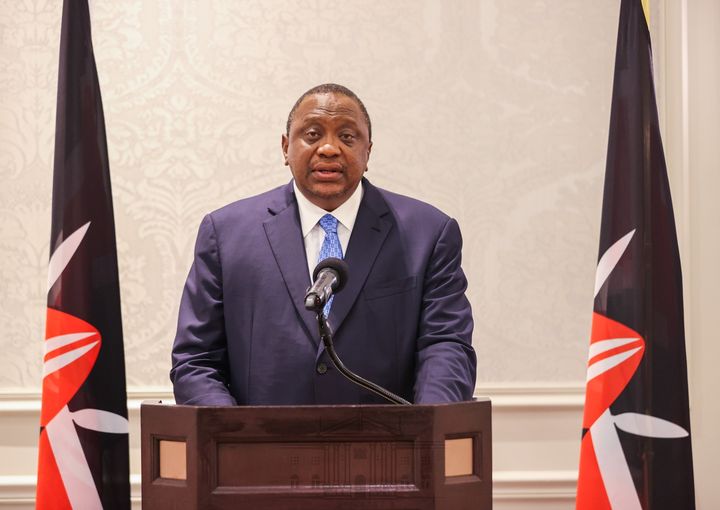President Uhuru Kenyatta has rejected in totality and does not recognize the findings in the international court of justice judgement in the Indian Ocean Case (Somalia – Kenya).
“Fellow Kenyans, when I became President on 9 th April 2013, I took an oath to protect the territorial integrity of the Republic of Kenya, said President Uhuru.
“I do not intend to abrogate my solemn oath; and, I will do everything possible as President and Commander-in-Chief, to preserve the territory of this our great Republic and bequeath the same, intact and unencumbered, to the next President when my term expires in less than a year’s time,” he said.
Uhuru said that as Kenya’s President, he assured Kenyans of his commitment to solving the issue amicably and urged all Kenyans to remain calm as his Government remains fully seized of the matter.
“Today, 12 th October, 2021, the International Court of Justice (the ICJ), delivered its decision in the Maritime Delimitation. While Kenya is not surprised at the decision, it is profoundly concerned by the import of the decision and its implications for the Horn of Africa region, and international law generally,” said Uhuru.
According to President Uhuru, the decision embodies a perpetuation of the ICJ’s jurisdictional overreach and raises a fundamental question on the respect of the sovereignty and consent of States to international judicial processes.
He said the International tribunals have jurisdiction ONLY to the extent of CONSENT by a State.
“Kenya, as an avid supporter of the rule of law, accepted the Court’s jurisdiction through a declaration in 1965, with an objectively clear outline of certain excluded matters. At the time, Kenya never imagined that the ICJ would violate the declaration to the extent of 2 imposing its mandate over expressly excluded matters,” he said.
In an unfortunate development over the last decade, a trend has emerged of some supposedly international organizations, being deployed as political tools against African countries. Sadly, this misfeasance has infected the ICJ, leading it to impose jurisdiction on a dispute it had neither jurisdiction nor competence.
In addition, the Court did not permit the use, let alone the exhaustion, of regional dispute resolution mechanisms, despite the existence of a robust African Union legal framework on border issues and dispute settlement.
Even with these flaws, Kenya participated in the initial proceedings out of its traditional respect for the rule of law, if ONLY to make its case that the Court had neither jurisdiction nor competence over the dispute.
However, the Court decided, in an inexplicable decision delivered on 2 nd February, 2017, that it would hear and determine the dispute, despite the founded objections. This decision was clearly erroneous.
Faced by the above substantive and a persistent procedural unfairness from a biased Bench; and the denial of the right to a fair hearing, Kenya was forced to withdraw its participation in the public hearings on 14 th March, 2021. In fact, Kenya doubts that any State would have appeared at all in a case such as this.
Further, based on the ICJ’s improprieties, and to avert the risk of another imposed jurisdiction, Kenya, on the 24 th September, 2021, withdrew its recognition of the compulsory jurisdiction of the ICJ 1 , and will only reconsider this withdrawal when pragmatic reforms are instituted in the administration of international justice 2 .
Kenya, therefore, calls on the international community to create an enabling environment for the pursuit of a negotiated settlement. Kenya and Somalia are neighboring States, with a common border, and communities with shared social, cultural and religious practices.
This decision is, in the circumstances, a zero- sum game, which will strain the relations between the two countries. It will also reverse the social, political and economic gains; and potentially aggravate the peace and security situation in the fragile Horn of Africa Region.
Kenya, like other independent Countries, possesses a determined geographical territory. As a devoted member of the United Nations, the United Nations Security Council as well as the African Union’s Peace and Security Council, we beseech the rest of the family of Nations to appreciate and respect our inherent right to protect, by all available means, our territory.
Nonetheless, Kenya is committed to a diplomatic solution of the current impasse.
Uhuru said that Kenya as a key proponent of respect for the principle of subsidiarity as a catalyst for African Solutions for African Problems would resolve the matter through the institutions of the African Union such as the African Union Border Programme and its Peace and Security, architecture, in addition to other bilateral arrangements.



